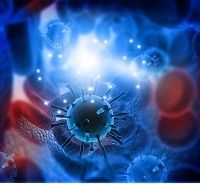Cholesterol May Determine HIV Progression
A proportion of patients with the human immunodeficiency virus (HIV) are able to naturally control its progression – known as nonprogressors. While ‘how?' remains a primary question, a new discovery may be on the right track to explaining it.

A proportion of patients with the human immunodeficiency virus (HIV) are able to naturally control its progression — known as nonprogressors. While ‘how?’ remains a primary question, a new discovery may be on the right track to explaining it.
The process trans infection occurs when the immune cells antigen-presenting cells (APCS) deliver HIV particles to T cells. Nonprogressors do not carry out the process effectively which partly explains why the disease does not progress even in the absence of antiretroviral therapy. Giovanna Rappocciolo, PhD, of the University of Pittsburgh, and colleagues looked at the cholesterol levels in thoseimmune cells.
“A closer look revealed that this defect in trans infection is likely due to enhanced cholesterol metabolism within the nonprogressors’ APCs, which appears to be an inherited trait,” a news release from the National Institute of Allergy and Infectious Diseases said.
Data was gathered from the Multicenter AIDS Cohort Study (MAC) which analyzed the history of treating and not treating the condition. The team examined eight HIV progressors and eight nonprogressors to identify possible gene expression patterns within the defective trans infection. They also aimed to pinpoint the extent that certain genes could be turned on or off in the APCs.
“Compared to APCs from progressors, cells from nonprogressors expressed higher levels of several cholesterol-related genes associated with defective trans infection,” the authors confirmed.
Therefore, this suggests that high cholesterol levels cause a defected trans infection which inhibits the HIV delivery process.
The findings gave insight to how nonprogressors naturally control the disease and suggested that HIV can be better controlled by targeting cellular cholesterol metabolism. The research will be presented at the 8th International AIDS Society Conference on HIV Pathogenesis, Treatment and Prevention in Vancouver, Canada.